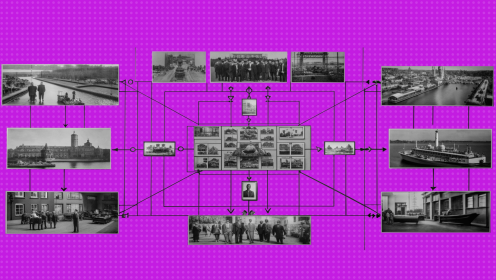Anger is an emotion that many would like to get rid of. The established social construct tells us that being angry (and especially showing anger) is not cultural, and showing aggression is also not entirely legal. To figure out what to do at work with negative emotions, you need to understand what they are, what causes them, and what biological processes are behind them.
What is anger
If you try to Google "anger", you will also come across "irritation" and "rage". And decide to figure out what the difference is between, it seems, synonymous words, you will find so many definitions that the diversity itself will begin to infuriate. I like to approach each topic thoroughly, so through hatred of the Internet I tried to find out what irritation, anger and rage are.
So, in response to an external or internal stimulus, we have a consistent chain of negative emotions.
First comes, in fact, irritation — a mental state in which we react sharply to any little things, because our conscious thinking takes a back seat.
Then comes anger - discontent or resentment towards a person, object or phenomenon, accompanied by a desire to get rid of the object of anger. Anger arises in a situation when something threatens us (not necessarily physically), and the brain sees options for resistance. If there are no such options, we experience fear.
Anger is followed by rage — a very strong and aggressive reaction to an irritant (getting into an unpleasant situation, contact with an unpleasant person, etc.). Rage is stronger than anger and is less manageable due to loss of self-control.

Sometimes, along with "irritation", "anger" and "rage", they also mention "aggression". Here, too, there is eternal confusion: then all the listed emotions are called aggression; then they say that anger and rage are manifestations of aggression. But the bottom line is that "aggression" is an action, not an emotion. And it is aggression that is a manifestation of negative emotions, such as irritation, anger or rage, but not vice versa.

In order not to get confused, I suggest simplifying the picture and calling the whole range of emotions discussed in this article "anger" or "anger". That is, we will not mean any specific emotions, but a negative reaction in general.
Finally, a funny fact that once again emphasizes the complexity of the situation. Science believed that a person has only 6 basic emotions: disgust, fear, anger (that is, the generalization I'm talking about makes sense), sadness, surprise and happiness. But, according to a study by psychologists from the University of Glasgow, we have only four of them: fear/surprise, anger/disgust, happiness and sadness. In short, the initial facial expressions of some emotions differ little, on the basis of which psychologists concluded that the differences between them have a social basis, not a biological one.
What happens in the body when we get angry
Let's move on from concepts to biology. The stimulus causes a reaction of the amygdala in our brain (that's where all emotions are born). Activation of the amygdala excites the frontal lobes of the brain, which are responsible for complex mental reactions. A deep reaction of the frontal lobes activates the sympatho-adrenal system, adrenaline and norepinephrine are released into the blood. The heartbeat quickens, the blood supply to the muscles increases, the facial expressions change: the wings of the nose swell (more oxygen is needed) and the upper lip tightens (echoes of an animal grin). In short, the body turns on the "hit and run" mode — we react sharply to danger, and if there are no other options, we run away.
The hippocampus reacts to this whole situation - part of the limbic system responsible for memory, behavior and much more. The trouble is that the hippocampus trains very quickly — the reaction threshold decreases, so the second wave of anger comes faster than the first. In general, the more angry we are now, the more often and more angry we will be in the future.
Why are colleagues infuriating
There are many situations to which we react with anger. Sometimes something happens inside us: lack of resources, envy, misunderstanding of others, loss, guilt, unrealistic expectations. Sometimes - outside: protection of loved ones, threat to self-esteem, injustice, pain. If we talk about the manifestations of anger at work, in relation to colleagues or clients, almost all situations are not related to our internal stimuli, namely external stimuli and our reaction to them. There are dozens of such situations, but I chose the main ones that I personally encountered.
They're always late. The systematic lateness of individual colleagues affects the work of the entire team. For example, if someone is late for a meeting, colleagues will lose time and may not have time to do their tasks. In general, the lateness of people who depend on something important is especially annoying, and they know it, but they are still late.

They violate personal boundaries. This can happen both physically and verbally. For example, a long time ago I worked in open space, and the director there could just casually approach any employee from behind, put his hands on his shoulders and bend low, saying, "well, how is the work going". This is a completely unacceptable situation. In another place there was a man who came to work and, savoring, talked about his illnesses. Did anyone want to hear about it? He didn't ask.
They consider themselves smarter than others. There are colleagues with an unhealthy conceit. They are so full of their knowledge of the world that they sincerely consider themselves better and smarter than others. If such a person holds a managerial position, I can still understand it (although phrases from the category "do it because I said so", without explanation, still infuriate). But when an ordinary employee sticks out his opinion as the only true one, it sucks.
Constantly dissatisfied with everything. "I'm hot", "I'm cold", "I hate work", "Ugh, the food is too greasy", "I'm bored", "I don't have enough time at all". People who constantly notify everyone about their dissatisfaction with certain circumstances, please stop. You strain your colleagues.

They prefer a different microclimate. Some like coolness, others like warmth. It is ok. But when representatives of one or another camp open/close a window without asking or turn on/off the air conditioner — this is lawlessness, I think.
They make noise. Discussing something with colleagues, talking on the phone, listening to music, and even tapping on the table with a pencil can be relatively quiet. But there are people who do all this at maximum volume, without thinking that it prevents others from concentrating. I hate such people.
There is no responsibility. Everyone has their own area of responsibility and responsibilities, on which the successful operation of the company depends. But there are people who can't even be assigned any task — they will fail everything and won't do it on time. In general, even the inability to come to work on time, despite the agreements (as I wrote a little above) is also a manifestation of irresponsibility.

They like to conflict. There are people in every company who are prone to inciting conflicts. They react very acutely to any nonsense (for example, because you washed the mug and left it on the sink to dry, and did not put it in the closet), they often provoke themselves, do not slow themselves down, and seem to enjoy scandals.
Gossiping. I like to discuss colleagues or bosses sometimes, there is such a sin. What to hide — my colleagues and I even had chats where we did it collectively. But it is unprofessional to release gossip outside of chat rooms, to spread rumors or to spread them.
They do not follow the rules of hygiene. Oh, how I hate dirty. Cluttered work desks, dirty dishes in the sink, greasy hair, unpleasant odors — I don't even know how to comment on all this. There are certain rules that must be observed in society, and there are things that cannot be done. Being a pig is one of them.
While I was remembering all these situations, everything began to boil inside…
Why are customers infuriating
The story with clients is the same as with colleagues. Anger arises in us because of external stimuli - actions or words directed at us or that do not fit into our picture of the world.

They don't trust me. There are clients who seem to turn to you as experts, but do not trust a single piece of your advice or opinion. Usually such clients hire some specialists to control others, but they still doubt everything. Perhaps even in myself.
They think they know everything. Absolutely infuriating type of clients — people who are completely sure that they understand everything better than you, specialists. They participate as actively as possible in the discussion of every aspect of the work and use you as hands to broadcast their stream of consciousness to the world.
They behave brazenly. There is a separate kind of customers who are rude, yell and generally behave in the most inappropriate way. It's better not to mess with such people at all, and if they do, it's faster to run far away.

Constantly dissatisfied with everything. "I don't understand this meme", "Not enough WOW", "Need luxury", "Not in the target audience", "Bad production" and other phrases of typical customers from telegram stickers. There's not even anything to tell - you definitely know such people.
They don't know what they want (or don't know how to explain it). The "distant relatives" of self-confident clients are clients who do not know what they want at all. "Well, you do it, and we'll say OK or not OK." To work productively with such clients, you need to pull everything out of them yourself.
They don't understand how much money is needed for the task. "We have 5 thousand bucks and we want a Bloomberg-level media". Some clients live in their bubble, where a designer sends a bunch of options at once, and if they don't like something, they may not get money, etc. When they go out into the real world, they are very surprised that in reality the prices for any good work are completely different.
They violate agreements. Relationships with clients are always based on agreements, but there are also clients who violate them. Not globally (although, if there is no contract, it may be so), but in small things, which is still very annoying. For example, you have agreed on three iterations, and the client asks you to redo more and more. Or you agreed to communicate during working hours, and he starts texting you in the middle of the night.
I haven't worked with clients for two years, but the memories of them are still vivid, like the notorious flashbacks from Vietnam…
13 tips not to break down at work
The main task in the fight against anger at work is to prevent its occurrence. To do this, you need to avoid annoying people and situations as much as possible. But if anger does arise, you need to try to pacify it or harmlessly throw it out somewhere. I remind you that you cannot revel in anger:
The more angry we are now, the more often and more angry we will be in the future.
Here are some tips that really help to cope with the situation and not lose control of yourself.
Go to a psychologist. I recently started going to a psychologist, and I think this is one of my best decisions in recent years. He helps me cope with anger and solve other mental problems. If there are problems with uncontrolled anger, it is important to consult a specialist, because anger attacks can be a symptom of some serious illness, such as depression, psychosis or bipolar disorder. You definitely won't be able to cope with this on your own, and it can be dangerous to miss the problem.

Understand what makes you angry. In addition, a specialist will help you understand the real causes of anger attacks. There may be a problem in the work itself, childhood, relationships with parents or some complexes. In principle, you can figure it out on your own. Determine what brings you unhappiness, irritates or infuriates, and remove it from your life.
Engage in introspection. Introspection is a cool and useful thing. The problem is not that someone pisses you off at work, but the reasons for it. We generally tend to attribute our own qualities to other people (this is called projection). That is, if something annoys you about someone, most likely it's you, not this person.
Watch for symptoms. As I said, it is important to prevent an attack of anger. To do this, you need to stop and calm down in time, feeling the first signs of the awakening of the Hulk in yourself. Pay attention to what happens to you when you start to get angry (your heart is pounding, it's hard to breathe, your hands are shaking, etc.). As soon as you feel that you are starting to turn green with anger, start breathing deeply, doing push-ups, running - in general, doing anything to calm down.

Avoid it. If everything pisses you off at work (including the job itself), it's better to quit and find something to your liking. But if everything suits you at work, and only individual colleagues annoy you, try to distance yourself. Move somewhere, leave the office as often as possible (to the store, to a meeting, etc.), agree with the authorities that you will work from home at least some part of the working time.
Strive for balance. Often the reason for our emotional instability at work lies in the imbalance between work and personal life. Because of overwork (I worked in a company where it was considered abnormal if you don't work in the evenings and weekends — it was terrible) you may not have enough resources for a normal existence. As a result, the body mobilizes. This is another primitive instinct — if there is not enough food, anger comes to drive away rivals.
Breathe. The simplest way to calm down, which works at any age (this is how I taught my daughter to calm down). Breathing exercises help the brain take a short pause to calm down. Take measured deep breaths and exhalations, breathe with your stomach and pretty quickly you will feel that the anger is receding.

Shout. Screaming is a great way to vent negativity. I live on the outskirts of the city, near the river, fields and plantings, so when anger rages in me or I am very upset about something, I go into the field and scream with all my might. It helps a lot. You can, of course, not go anywhere, and shouting into the pillow is also a good option.
Channel the energy into a peaceful channel. This is one of the best ways to deal with simmering anger. Run, do push-ups, go to the gym, do martial arts or some kind of sports. Yes, at least take up dancing! This will save you from explosive energy and will be good for your health.
Honestly speaking about the problem. Alternatively, you can try to discuss everything with the object of your anger. Only with a cool head, otherwise it can only worsen the situation. Calmly explain what makes you angry or hurt with the help of "I-messages", that is, talk only about yourself and your feelings, do not blame or criticize.
Turn emotions into text. If you do not dare to talk live (this is normal), vent your anger into the text. Write on plain paper or in notes on your phone, don't focus on beauty and literacy — just write whatever you feel. If you write everything on paper, you can then tear it up or burn it — this destructive action also helps.
Despite all my attempts to understand myself, understand and forgive colleagues, I still often get angry because of some little things. Already less than before, because now I understand how these processes work. There is still a long way to go, but it was definitely worth stepping on it.
If you have any other tips on how to cope with anger and not to snap at colleagues and clients, share them in the comments.


















